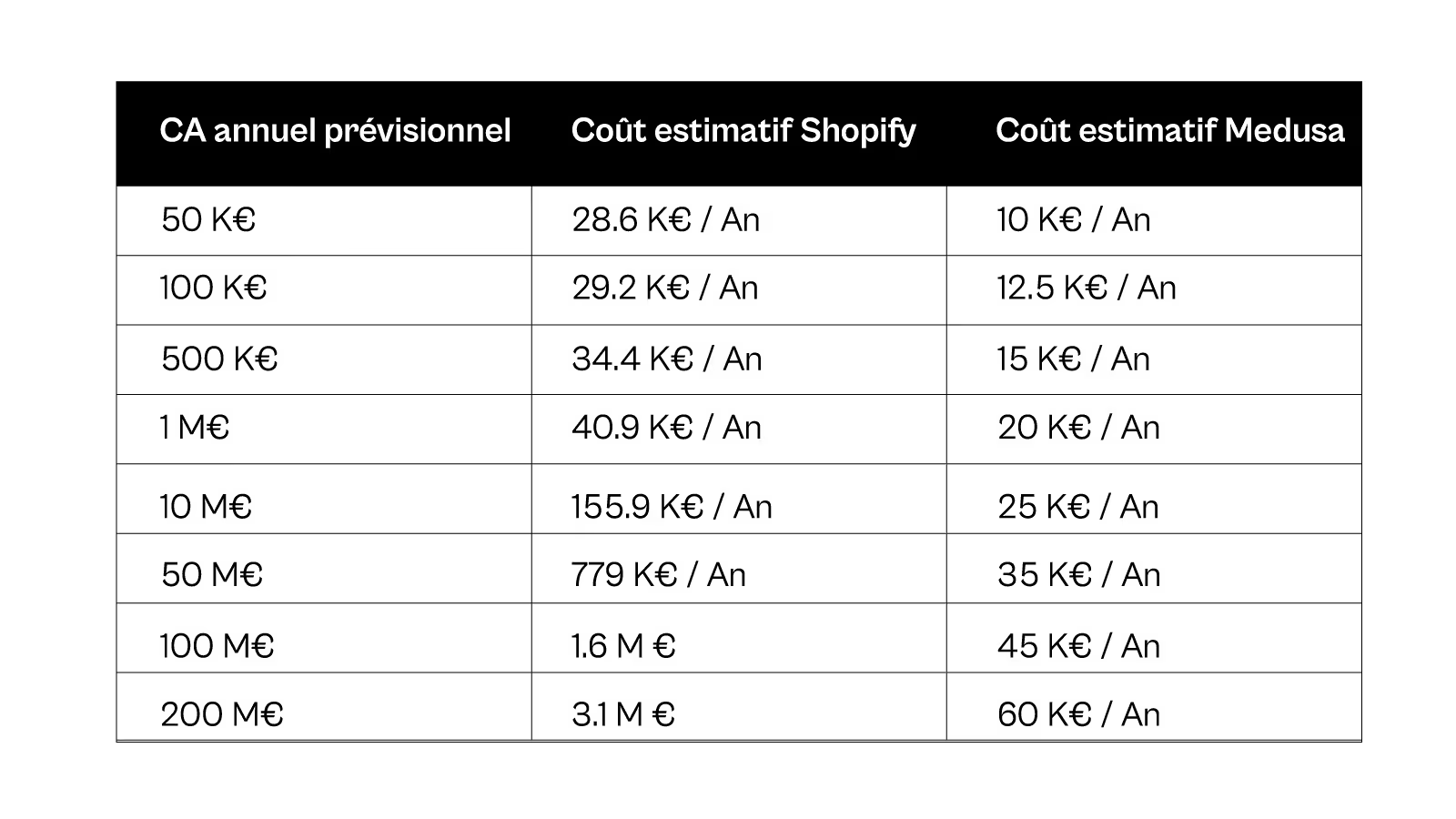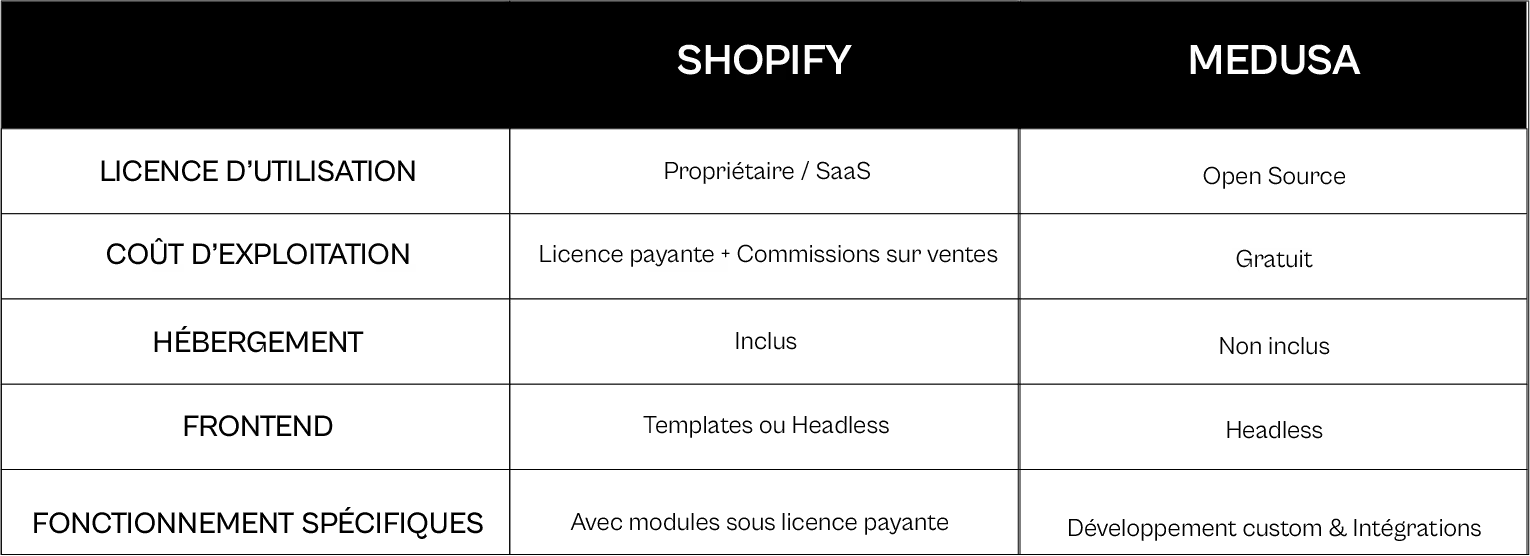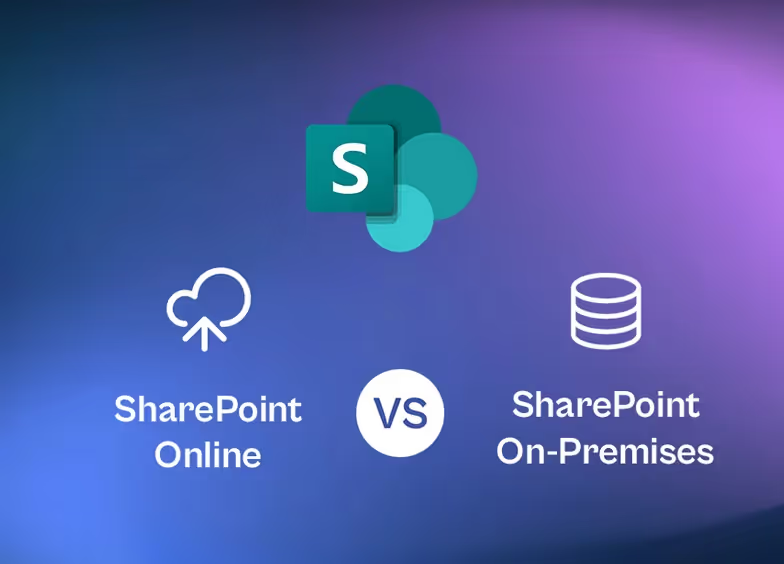
Shopify or Medusa: Which CMS can really keep up with your growth?

E-commerce platforms have never been more numerous or more specialized. Between turnkey solutions and open source technologies, each approach has its advantages... and its limits.
On the one hand, Shopify has established itself as an accessible and standardized solution. On the other hand, as needs become more complex — especially in a B2B context —, the question of technical flexibility becomes unavoidable.
Faced with these challenges, Medusa (medusa.js) is positioned as an open source alternative to Shopify, designed to meet the specific requirements of projects with a strong business dimension.
Rather than opposing two systems, it is a question of objectively analyzing their capacity to support growth over time. Shopify vs open source e-commerce: two visions, two approaches.
Shopify vs Open Source: Understanding the Limits of the SaaS Model
Shopify is based on a simple and effective proposal: quick launch, hosting included, and an ecosystem of turnkey applications. An ideal solution for e-commerce projects that require little customization.
However, this SaaS logic reaches its limits as soon as business flows become more complex. B2B use cases, connections to third-party systems (ERP, PIM, CRM) or specific price logics often require costly or technically demanding adaptations.
💰 Pricing in proportion to performance
Beyond ease of use, Shopify's business model is based on commissions taken from each transaction.
In other words, the more a business sells, the more its costs increase.

For example:
- €10 million in turnover = up to 15.9 K€/year on Shopify, against 25 K€/year with Medusa
- €100M = up to 1.6 M€/year on Shopify, against 45 K€/year with Medusa
On the other hand, Medusa does not receive any commission on turnover. The costs are mainly related to infrastructure and maintenance, with no change related to sales volumes.
This ensures better budget predictability as the business grows.
Two fundamentally different technical models
Shopify offers a closed framework, controlled from start to finish, facilitating a quick start but limiting customization.
Medusa is part of a headless and modular logic, allowing fine integration into already existing technical architectures.
One favors simplicity. The other is flexibility.
Medusa is an open source alternative to Shopify for companies whose technological environment or business logic require a more scalable base.

Where Medusa makes perfect sense
The highlights of Medusa lie in its ability to integrate complex needs natively:
- Multi-user account management
- Differentiated pricing according to segments
- Seamless interconnection with third party ERPs or PIMs
In a B2B context, where each customer or channel may require specific treatment, this flexibility represents a real driver of performance.
Medusa does not ignore complexity: it makes it possible to exploit it.
A platform adapted to structured e-commerce organizations
The limits of SaaS platforms appear as soon as the company wants to orchestrate advanced purchasing paths or interface several third-party systems.
Medusa was designed to respond to these use cases.
Take the example of a B2B company with a proprietary ERP, an open source PIM and an order logic specific to each customer type.
Where a SaaS solution would require several external adaptations, Medusa integrates directly into this environment — without costs increasing mechanically with turnover.
Shopify vs Medusa: two growth strategies
Shopify vs open source e-commerce, it is also a strategic choice. Shopify offers a structuring solution to quickly launch an e-commerce business.
Medusa offers a modular framework, designed to support tailor-made architectures and fast-growing sales volumes.
The benefits of Shopify lie in its speed of implementation.
The benefits of Medusa are fully expressed in contexts where flow control, connectivity and cost stability are priorities.
Medusa thus offers an evolving technical framework, while maintaining a balanced budget — a differentiating point for any company wishing to anticipate its increase in workload.
In conclusion
Two models for two ambitions:
- Shopify : adapted to projects requiring a quick online launch, within a standardized functional framework.
- Medusa : designed for structured companies, with specific technical needs and a strong challenge of controlling costs over time.
Medusa is emerging as an open source alternative to Shopify for projects that wish to evolve peacefully, without technical constraints or financial dependence on sales volume.

You might be interested

SharePoint Online: When the modular approach reduces deployment times

SharePoint Online vs SharePoint On-Premise: a comprehensive comparison to choose the right solution
.avif)



